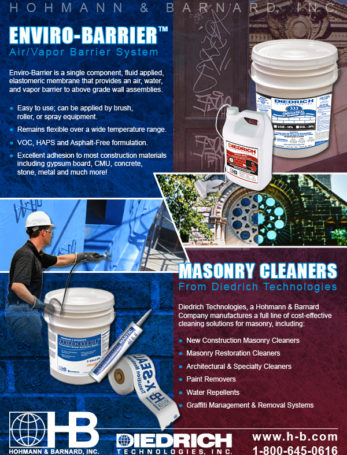09 Jun July 2016 Newsletter
It has been a particularly hot and dry summer in most of the South but that has been good for business. The continuing slow growth economy has also been good for construction as the economy isn’t overheating so the Fed isn’t raising interest rates, which is good for developers. The stock market rebounded from the initial Brexit shock and is doing well

Dear Friends,
It has been a particularly hot and dry summer in most of the South but that has been good for business. The continuing slow growth economy has also been good for construction as the economy isn’t overheating so the Fed isn’t raising interest rates, which is good for developers. The stock market rebounded from the initial Brexit shock and is doing well so that isn’t hurting developers either.
After some large price increases over the last few months we have had a slowdown in the number of announced price increases. See below for a look at pricing for the main products we sell.
- Stable is the best word to describe prices in July as prices for most of the products we distribute have been unchanged since our June newsletter and most manufacturers have indicated there will be few, if any, changes in August.
- Domestic rebar mills continued to hold the line on prices in July and no price changes are expected for August, despite the dip in the price of scrap steel of $10.00/ton in early July and an adequate supply of less expensive foreign rebar in the eastern and southeastern US and more containers “on the water” now for August delivery. Demand for domestic rebar continues to be well above 2015 levels and most analysts expect demand to continue to be strong into September, so domestic mills have little incentive to reduce prices.
- As was noted in our June newsletter, prices for SYP dimensional lumber and plywood fell between 2 and 4% in July and most analysts expect prices to continue to fall by another 2% in early August due to excess availability in the southeast. Lead times for mill direct trucks are now approximately one week versus the typical lead time of 10 days to 2 weeks. Demand usually increases in mid-August as dealers prepare for the fall selling season, so expect SYP lumber prices to begin to move up in late August or early September.
- Polyethylene price were unchanged in July and resin manufacturers were unable to push through their July price increase. Resin manufacturers have yet to announce a price increase for August; however, some analysts predict resin manufacturers will try to increase prices by $.04/ LB or so in August. If they do and the price increase holds, polyethylene sheeting manufacturers may increase prices sometime in early to mid-September.
- As wire rod prices have been unchanged since May, concrete reinforcing wire mesh prices have basically remained unchanged since the industry wide June price increase. Wire rod manufacturers are not expected to increase prices in August so concrete reinforcing prices should hold at or about current levels through September.
- Masonry reinforcing manufacturers are holding firm on pricing after increasing prices in June. Although they had indicated they may increase prices again in September due to a possible wire rod price increase in June, as wire rod manufacturers were unable to get a June price increase masonry reinforcing manufacturers have indicated they will not increase prices in September.
- The producer price index (PPI) for final demand in June, not seasonally adjusted, increased 0.7% from May but only 0.3% year-over-year from June 2015, the Bureau of Labor Statistics (BLS) reported on July 14. AGC posted tables and an explanation focusing on construction prices and costs.
Click here for the latest update on the construction economy from Ken Simonson, the chief economist of the AGC.
SPECCHEM
Quality construction chemicals for the concrete industry

HOHMANN AND BARNARD
A leading developer and distributor of masonry reinforcement, flashing, anchors, and air barrier systems for masonry.

RAVEN INDUSTRIES
Producer of construction films – poly, vapor barriers, and liners


Jonathon Ellis
Our associate profile this month is of Jonathon Ellis one of our Atlanta-based sales managers. Jonathan was born in Atlanta and graduated from Alexander High School. He attended Reinhardt University and Jacksonville State University where he obtained a degree in political science. He is single and enjoys working out, weekends at the lake house, college football, and traveling. Prior to joining us in March he worked for Williams Form Engineering and Williams Fabricated Rebar. His knowledge of rebar estimating and detailing makes him one of the most effective fabricated rebar sales people in the Atlanta market. He has been a great addition to our team.
Our management article this month is titled 10 Trigger Words to Ban from Your Emails. Words are powerful so this is an article well worth reading.
JULY’S MANAGEMENT ARTICLE
10 Trigger Words to Ban from Your Emails
By John Brandon
My day job is to write about technology and test gadgets. However, there are days when I think I’m really just processing email. Despite my best efforts to reduce incoming spam, categorize and label messages, and automatically flag messages as unimportant, I still receive at least 100 new messages a day. Sometimes it’s three times that number.
Many of these messages contain trigger words–they alert me to marketing language or truth-stretching. Sometimes, trigger words tell me the person is not being sincere (for example, when they say “sincerely”). As such, I try to root out this kind of language from my own email communications. Here are 10 words I aim to avoid.
1. Unfortunately
Here’s my favorite trigger word. When an incoming message has the word “unfortunately” followed by a comma, I know the person sending it is not being that sincere. It’s a dismissive word–the sender is saying they have the power and, unfortunately, you don’t.
2. But
The word “but” at the beginning of a sentence is a sign of a lazy typist. We all use the word way too much. It’s quite jarring, and tends to be a little too informal for business. There’s a better way to interrupt yourself in an email–say, by using a hyphen or a comma.
3. Sincerely
The go-to word for signature lines has become meaningless. Are we really being sincere when we send an email to a colleague about the company potluck? Ninety percent of the emails I send are not that sincere–at least by the technical definition of being free of all pretense.
4. Regrettably
The word “regret” is meant for a deep feeling of sadness. It’s a synonym for despondent. Too often, an emailer who says “regrettably” is being dismissive. They don’t really feel any regret. It’s better–and faster–to just state the problem and forget the qualifying word.
5. Best
Be careful with the word “best” in an email. Are you sure your product or service is really the best? Do you have data to back up the claim? An expert opinion? When I get a message that says “This is the best product,” I immediately start wondering if that is really true.
6. Amazing
Be careful with “amazing” too. It’s much better to skip such hyperbolic words and just describe what makes it so special. I could say “This is the best app ever” or I could say “This is the only app that can read your mind.”
7. Statistically
This is another throwaway word. If I say “Statistically, our customer service is amazing,” I’m really wasting your time. I haven’t said anything. It’s better to just give the stat. When an email starts out with a stat, like “Seventy percent of Millennials don’t watch broadcast television,” I pay attention.
8. Formally
You know how someone might send you a message to “formally” introduce himself? What does that even mean? The message will be followed by a tuxedo? There’s no point in saying you are being formal–just be formal and people will notice.
9. Interestingly
I’m guilty of using this one. It tends to be followed by something that is not actually that interesting. Otherwise, we’d just skip the word interestingly and state the obvious. The trigger is supposed to help the reader. Instead, it slows down your prose.
10. Remotely
My last trigger word may be the most controversial for office workers. What does it mean to work remotely? If you work in Iceland, you are remote. But if you tell a co-worker you will be working remotely, and you end up at Starbucks, that’s not really the same thing. I suspect the word has lost all meaning in an age of mobile computing–I prefer saying I will be off-site.
I hope you’re enjoying the summer and that business is booming for you. That’s it until next month.
Best regards,

Jim Sobeck
President 864-263-4377
jim.sobeck@newsouthsupply.com
Connect with us: Twitter | YouTube | Facebook | LinkedIn
Author of The Real Business 101: Lessons From the Trenches
Get your copy below.
For Smashwords (eBook version for Kindle, iPad, Nook) click here
For direct link to Kindle site click here
For print version click here

No Comments